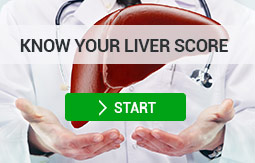What’s in this article
What are autoimmune diseases?
What is autoimmune liver disease?
Signs & symptoms
Diagnosis
Treatment
What are autoimmune diseases?
Autoimmune diseases are when your immune system attacks your body by mistake. Normally your immune system will identify bacteria or a virus and attack it, it knows the difference between foreign cells and its own cells. When you suffer from an autoimmune disease the body releases proteins called autoantibodies that attack healthy cells. This can target your whole body or specific organs depending on the type of disease you have. The cause of these autoimmune diseases is unknown; however, women are more likely to get an autoimmune disease at 6.4% compared with 2.7% for men, the most common age of inception being 40-50 years.
What is autoimmune liver disease?
Autoimmune liver disease is another name for autoimmune hepatitis. There are two types of autoimmune hepatitis. Type 1 is the most common in the U.S. with 70% of sufferers being female. It can develop at any age but is most often starting in young adulthood. People who suffer from type 1 autoimmune hepatitis often suffer from other autoimmune diseases such as celiac disease, Crohn’s disease, Graves’ disease, rheumatoid arthritis and type 1 diabetes, to name a few. Type 2 autoimmune hepatitis is most common in children and young people, although can be seen in adults. Other autoimmune diseases may also come hand in hand with this type of autoimmune hepatitis.
Causes of autoimmune hepatitis are unknown exactly, however, researchers suggest the reasons are autoimmunity, exposure to certain viruses or medications, environmental triggers, and a genetic predisposition.
Signs & symptoms
There are often no symptoms of autoimmune hepatitis. However, symptoms may vary from mild to severe. Common symptoms include:
- Abdominal discomfort
- An enlarged liver
- Jaundice (yellowing of skin and whites of eyes)
- Fatigue
- Joint Pain
- Itching
- Light Colored Stools
- Nausea with or without vomiting
- Loss of appetite
- Skin rash
- Dark urine
Diagnosis
Unfortunately, there is no single test that can determine which autoimmune disease you have so your doctor will have to run several tests. Th first test they will usually run is an antinuclear antibody test (ANA) which is a blood test that will show the presence of the antibodies that attack healthy cells. After this more tests can be run to see which type of autoimmune disease you have, for autoimmune hepatitis a liver biopsy can be done. It is important to see your doctor if you suffer from any of the aforementioned symptoms as autoimmune hepatitis that goes untreated can cause permanent scarring of the liver (cirrhosis), liver failure or liver cancer.
Treatment
Whether you suffer from type 1 or type 2 of autoimmune hepatitis treatment is to slow or stop the immune system attacking your liver. Treatment is in the form of medications that lower immune-system activity and ideally stop the disease from progressing. Treatment with medication can often bring unwanted side effects, especially during long-term use. You may go into remission several years after treatment, however, the disease can return if medication is stopped.
When medications don’t halt the progress of the disease, or you develop irreversible scarring (cirrhosis) or liver failure, the remaining option is a liver transplant.
Find out more about the basics of liver health with Dr. Tarek Hassanein, M.D.
References
healthline.com
www.liverdirectory.com
ncbi.nlm.nih.gov
niddk.nih.gov
mayoclinic.org

 (442) 244-5115
(442) 244-5115














